Notre Dame du Groseau chapel
Cultural and historical site
10 min
shade
Site history
This chapel is the only vestige of the Monastery of Groseau founded in 684 by Petronius, bishop of Vaison-la-Romaine. The monastery was destroyed in 739, then rebuilt in 1032.
The presence of an abbey in this place is not fortuitous. From prehistoric times, a source as abundant as that of Groseau must have been at the origin of a cult rendered to the deities of the earth and water. A Gallo-Greek votive stele bears witness to these earlier beliefs.
No reproduction is permitted without the written consent of the author. (id6048)
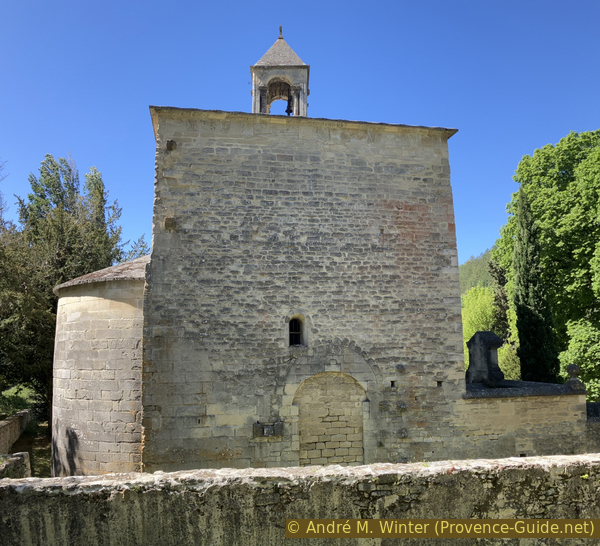
Chapelle de Grosau seen from the road
Description
The chapel, for its part, was rebuilt in 1150. An unusual ground plot brings together two blocks of square masonry joined to one another.
The smallest to the south (Saint-Jean Baptiste chapel, built in the 11th century) has a barrel vault and a small apsidiole remarkable for the number and quality of its decorative motifs. This chapel is a kind of annex chapel to the south of the main massif.
No reproduction is permitted without the written consent of the author. (id6046)
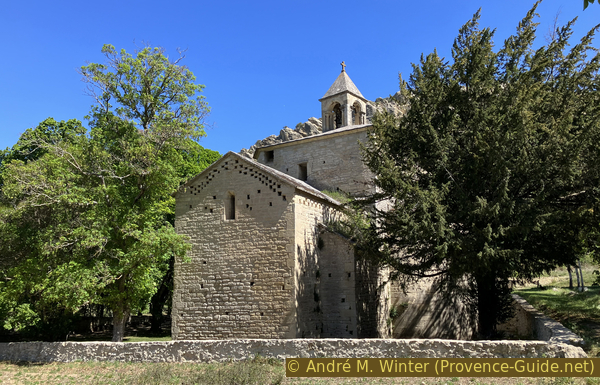
Chapelle du Grosau seen from the south
The largest (Notre Dame du Groseau Chapel) consists of a centered choir surmounted by an eight-sided dome. The angles are decorated with small pilasters which meet around the central oculus. The passage from the square plan to the octagonal plan is made thanks to carefully matched squinches and decorated with the symbols of the four evangelists, sculpted in a naive style. The square nave ends on the east with a large vaulted apse. In the choir bay is an old pre-Roman votive altar, on which is engraved a Gallo-Greek inscription dedicated to the Celtic god Graselos. The chapel is surmounted by an off-centre Romanesque pinnacle.
No reproduction is permitted without the written consent of the author. (id6043)
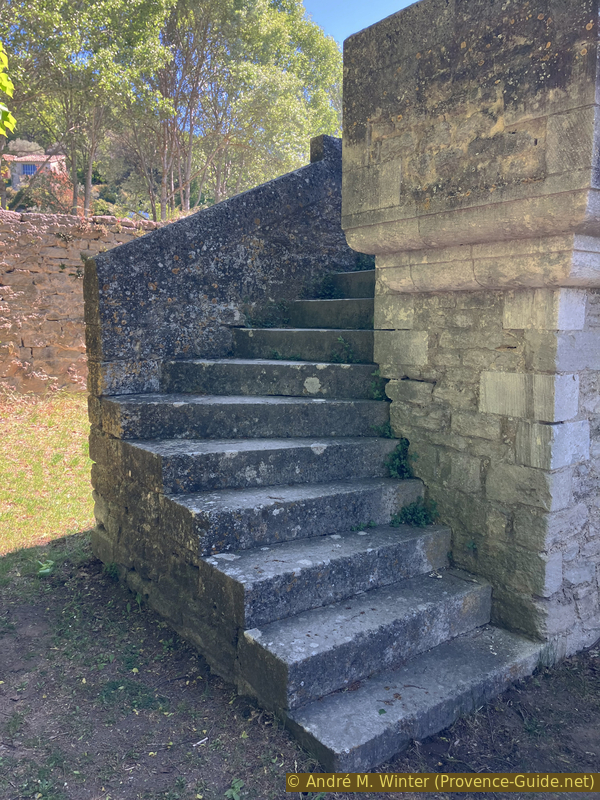
Staircase to the outdoor pulpit of the Chapelle du Groseau
The jambs of the arcade which connects the two chapels carry statues representing perhaps Saint Victor and Saint Benedict (until the 16th century, in fact, the monastery belonged to the Benedictine order of Saint-Victor de Marseille).
In addition to this unusual ground plot and the presence of sculpted elements from the 12th century, and probably antique re-use outside under the cornice of the roof, the two chapels have the particularity of retaining some traces of painted decoration on their interior walls. The latter, very strongly altered by stripping the surfaces in the 20th century, are nevertheless sufficiently well preserved.
The two chapels underwent various restorations between 1853 and 1957.
No reproduction is permitted without the written consent of the author. (id6044)
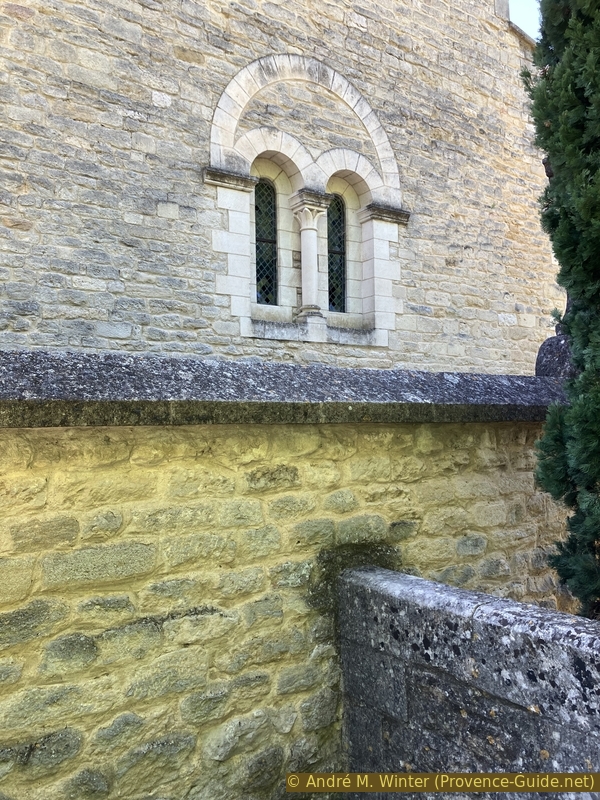
A window of Chapelle du Groseau
The Chapelle du Groseau is closed to the public for an indefinite period due to restoration work. The reason is the change in soil structure with climate change.
Before, it was open every day in July and August and by reservation at the Malaucène tourist office outside this time.
But it is possible to access the site.
No reproduction is permitted without the written consent of the author. (id6045)
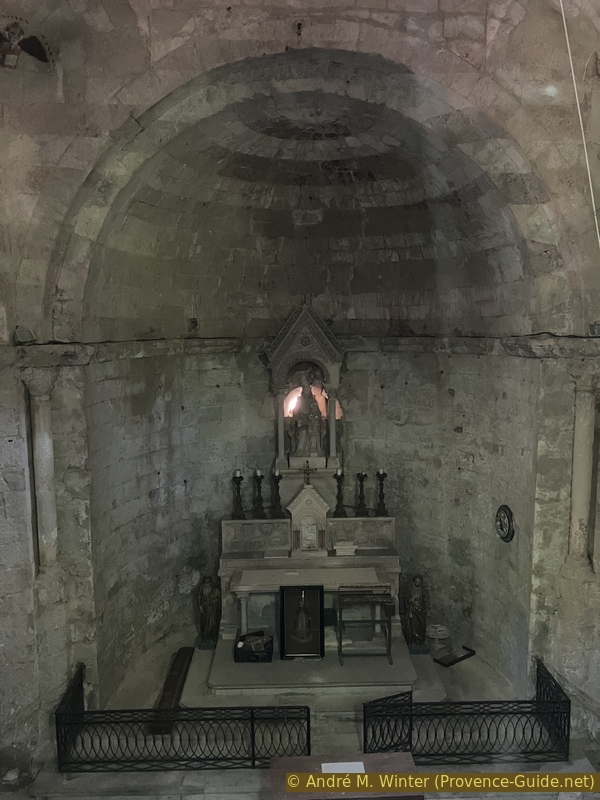
Inside of the Groseau chapel
In front of the Notre Dame du Groseau chapel, a porch surmounted by a terrace is the result of the reuse of a construction attached to its facade until the end of the 19th century (the Hermit's house). This outdoor pulpit bears witness to the strong pilgrimages in the 19th century.
From this terrace, it is possible to see the interior of the chapel when it is closed. You have to pass the wall that serves as a railing, then swing on the top of the wall (photo) to find yourself under the central bay. It is then possible to raise a camera or a mobile phone to photograph through the window.
No reproduction is permitted without the written consent of the author. (id6047)
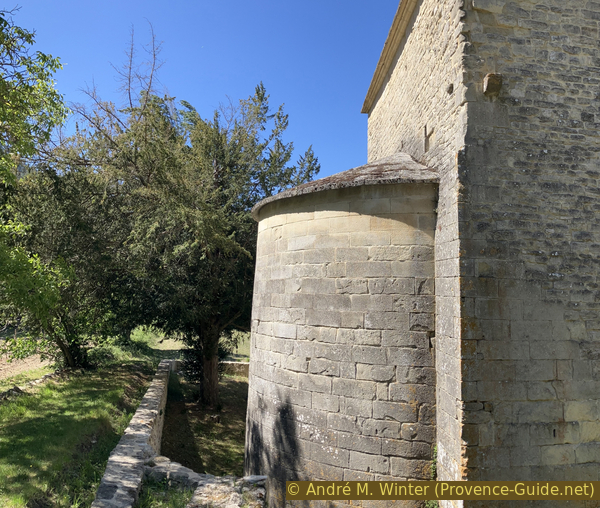
Apse of Groseau chapel
The first pope of Avignon, Clement V (1305-1314), often stayed there and even built a palace there.
A curious mailbox with the name of pope is at the access to the site.
No reproduction is permitted without the written consent of the author. (id6049)
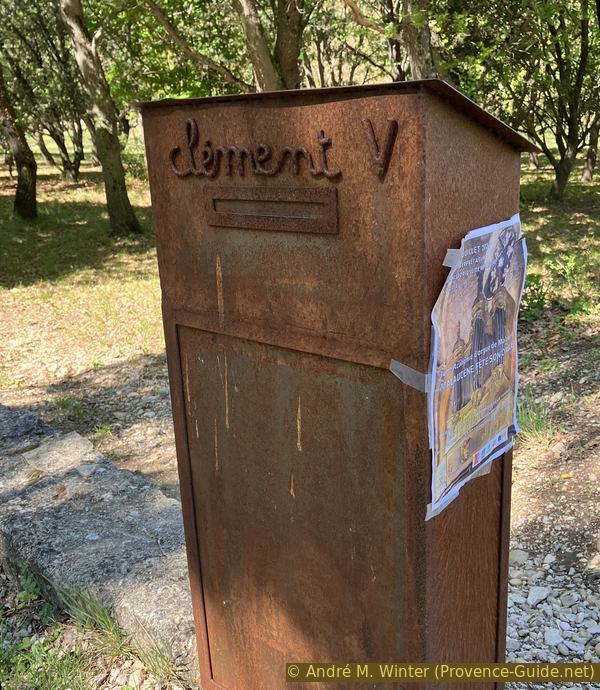
Letterbox of Pope Clement V
Access by public transport
The location cannot be reached by public transport.
Access by car
We are on the road between Malaucène and the western slope of Mont Ventoux. The fastest access is via Avignon, Carpentras and Malaucène.
Take the direction of Mont Ventoux arriving at Malaucène. You quickly leave the inhabited center and the road climbs in a straight line towards Mont Ventoux. In this straight line is the chapel on the right.
Parking site
You have to park on the side of the road.
No reproduction is permitted without the written consent of the author. (id6041)
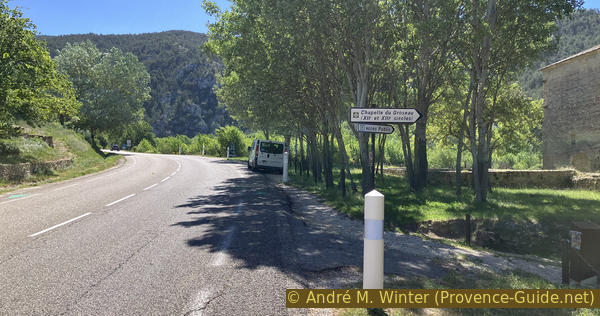
Parking along the D974 road near the Chapelle du Groseau
The source of Groseau
The history of Malaucène and its valley is intimately linked to the presence of the source of the Groseau (lo Gronzèu). In Gallo-Roman times, its waters supplied the city of Vaison. Channeled for a long time, the stream (lo Riu des Malaucéniens) allowed the watering of the land and the development of industries in the 19th century.
The spring is now a park with ample parking and a restaurant across the road. The park is calm and the large pool of clear water is often visited by ducks.
No reproduction is permitted without the written consent of the author. (id6050)
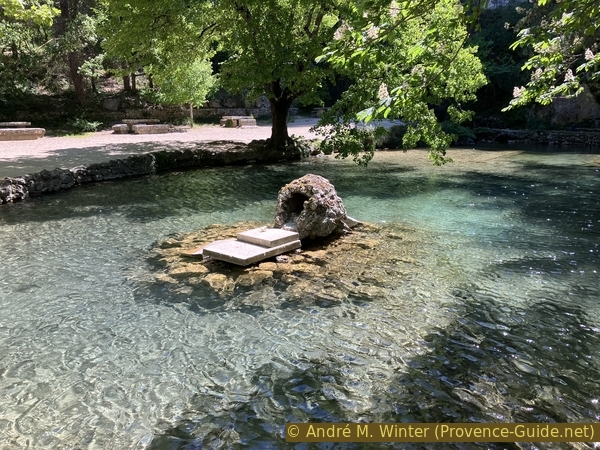
Bassin of the Source of Groseau
No reproduction is permitted without the written consent of the author. (id6051)
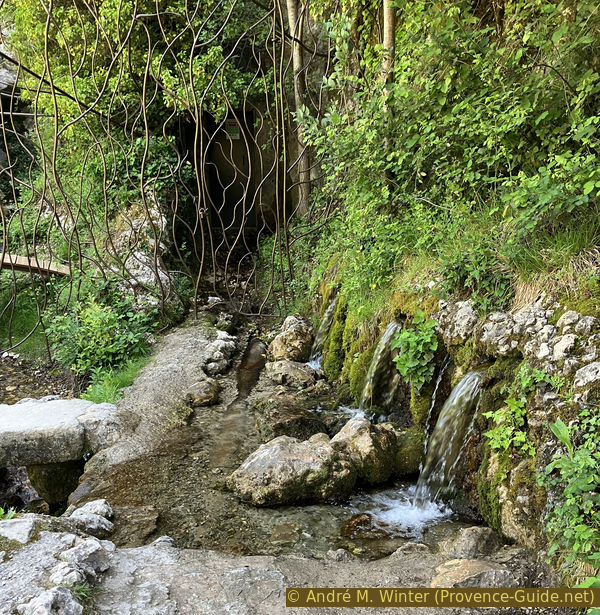
Source du Groseau
No reproduction is permitted without the written consent of the author. (id6042)
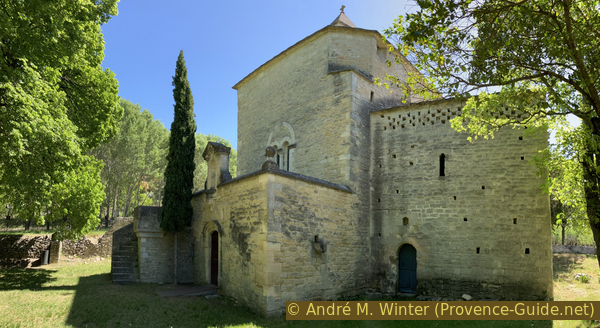
Le Groseau chapel seen from the west